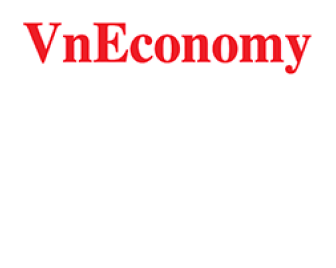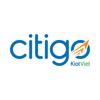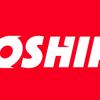Foreign startups coming ashore
Vietnam is viewed as a market of some potential by many foreign startups.

Weploy, an Australian-based human resources (HR) startup, announced in early March its official entry into Vietnam. With investment of up to $5 million secured from foreign investors in its first funding round after just three months of being registered in the country, Weploy is investing in developing and providing food and beverage (F&B) training for unskilled workers. The training will enable individuals to acquire the skills and knowledge necessary to work in the F&B industry. Weploy will also help people move from provinces to the city to seek job opportunities.
Mr. Trang Cong Phat, Co-founder and CEO of Weploy, told VET that, with its efforts, the company not only creates employment opportunities for individuals but also meets industry demand for a skilled workforce. “We plan to expand operations to other cities in Vietnam by the end of the year, increasing access to employment opportunities and contributing to the country’s economy,” he added.
Local expansion
Singaporean insurance startup Igloo recently raised an additional $27 million in its Series B funding round, bringing a close to the round at $46 million. Igloo will use the capital to continue to grow its product portfolio and seek more opportunities to protect the underinsured in Vietnam. It will soon partner with a leading convenience store in the country to enable customers to purchase insurance policies more easily.
It is also in the process of identifying and closing various merger and acquisition (M&A) opportunities to move faster towards its vision of “Insurance for All”. Igloo will continue to cooperate with important partners in different fields, including e-commerce, with the goal of doubling its employee numbers and tripling its agency team. Mr. Tri Nguyen, Country Manager Vietnam at Igloo, said the country will continue to be Igloo’s most important market in Southeast Asia, and in the next three to five years it aims to become the largest insurtech (insurance technology) company in Vietnam, in both agency and B2B2C channels, towards becoming a digital technology insurance company.
Despite a difficult 2022, Indian car rental startup Zoomcar reached a remarkable milestone of reaching near break-even after just a year of operations in Vietnam. Zero major accidents or incidents were recorded in the tens of thousands of bookings it received and met. Zoomcar will continue to stay laser-focused on improving its products and services and plans to expand to Hanoi and then central Da Nang city.
Mr. Kiet Pham, Country Manager Vietnam at Zoomcar, said this will bring them a step closer to their mission of creating localized solutions that address pressing challenges linked to urban mobility in Vietnam. “Our goal is that by the end of 2023, Zoomcar will be the largest self-driving car rental e-commerce platform in Vietnam,” he added. “This is quite a challenging goal, but I strongly believe we can do it.”
According to Ascend Vietnam Ventures (AVV), sectors that have no foreign ownership limits and business models that can easily expand across borders with minimal localization needed are seeing the presence of more foreign startups. Some large-scale startups have expanded to Vietnam and are quite popular among Vietnamese consumers, including e-commerce companies Lazada and Shopee and ride-hailing apps Grab and Gojek. “We have also observed a recent wave of web3 startups (blockchain, crypto, Defi, etc.) expanding into Vietnam thanks to a combination of a growing middle class with disposable income, a lack of diverse domestic investment opportunities, and a tech-savvy population driving both adoption and innovation,” said Ms. Thao Nguyen, Senior Investment Manager at AVV.
Prime destination
Weploy observed the challenges faced by jobseekers in Vietnam, especially those with limited skills or education, and at the same time recognized the rapid expansion of the F&B industry in the country and its significant demand for skilled and professional workers. “Weploy saw this as an opportunity to offer its innovative staffing solutions to businesses in the country and make a meaningful impact on the labor market,” Mr. Phat said.
According to a report from iPOS.vn, Vietnam was estimated to have around 338,600 restaurants and cafés as of the end of 2022. Its F&B industry is expected to be worth VND720.3 trillion ($31.3 billion) this year. Despite the anticipated economic difficulties, market researchers Euromonitor have forecast that the country’s F&B market value will increase 18 per cent in 2023 compared to 2022.
However, talk of growth is accompanied by concerns about human resources in the industry. According to iPOS, 99.1 per cent of F&B businesses are concerned about their workforce. Specifically, 49.5 per cent struggle to find employees and 37 per cent face a lack of professional staff. Though F&B revenue is estimated to have reached nearly VND610 trillion ($26.5 billion) in 2022, the workforce is mainly unskilled and fails to meet employer needs.
“This market report highlights the growing demand for skilled and professional workers in the F&B industry, which presents an opportunity for Weploy’s innovative staffing solutions to make a significant impact,” Mr. Phat believes. “As a company committed to providing employment opportunities and supporting those seeking work, we are well-positioned to address the challenges faced by jobseekers in Vietnam and provide businesses with the skilled workforce they need to succeed.”
Meanwhile, Vietnam’s population structure has many different groups with various insurance needs, which presents Igloo with a great opportunity to design and customize products suitable to the needs of each.
Insurance penetration in Vietnam is currently below 3 per cent, much lower than the 9.6 per cent seen in developed markets. Average annual insurance spending per capita stands at around $75, compared to $175 in emerging markets and $4,665 in developed markets. Vietnam’s insurance industry as a whole is expected to be worth $3.5 billion by 2026, according to data analytics firm Global Data, while revenue from insurance technology products currently accounts for only 2-3 per cent of revenue.
Vietnamese people have paid greater attention to insurance, especially health insurance, since Covid-19, and become more familiar with online consumption, with the level of willingness to purchase insurance products online rising rapidly. Government policies promoting digitization in all fields, including insurance, have also created a more favorable environment for tech companies like Igloo. “Such reasons have made Vietnam one of Igloo’s key markets, and the country is always among our highest-performing markets,” Mr. Tri Nguyen noted.
Vietnam’s car rental market, meanwhile, was valued at $463 million in 2021 and is expected to come in at $884 million by 2027, for a compound annual growth rate (CAGR) of about 14 per cent in the period, according to market researchers Mordorintelligence. Car ownership in Vietnam now stands at 23 cars per 1,000 people, which is still low by regional standards, while demand for transportation is high. “These are bullish factors for Vietnam’s self-driving car rental industry,” said Mr. Kiet Pham.
In general, Vietnam has been an attractive market for international tech startups looking to expand thanks to factors such as strong economic growth, favorable demographics, comprehensive government support, unique market accessibility, and strong tech talent, according to Ms. Thao Nguyen.
Firstly, from a macro perspective, Vietnam has been one of the fastest-growing economies in the world over recent times. It has a sizable population of close to 100 million, of which 70 per cent are under the age of 35, which gives it a natural advantage when it comes to digital adoption. There is also a rapidly growing middle-class, contributing to booming consumer expenditure.
Secondly, the Vietnamese Government is now supporting startups more than ever. Technology has been recognized as a key driver of Vietnam’s economy, with the government announcing a goal of having 20 per cent of GDP come from the digital economy by 2025.
Thirdly, Vietnam is one of the most accessible startup ecosystems in Southeast Asia, leading to faster maturity. In sectors like e-commerce, ride-hailing, social media, and many others, market leaders are international companies, and in many of these sectors there are no limitations on foreign ownership. These non-protectionist policies plus the fact that 97 per cent of enterprises in Vietnam are small and medium-sized enterprises (SMEs), with few large conglomerates acting as gatekeepers, make Vietnam highly accessible and appealing for international companies to come and grow their business.
And lastly, there is an abundance of high-quality, affordable tech talent. Many foreign startups choose to place their tech hubs in Vietnam to leverage the local talent, allowing them to easily scale up their team and expand operations on a much lower budget.
“With an accessible and rapidly-maturing tech ecosystem, low cost of living, safe and stable working environments, and the largest pool of affordable and talented software engineers in the region, Vietnam is an ideal ‘test bed’ for tech companies,” said Ms. Thao Nguyen.
Tackling challenges
According to AVV, despite its burgeoning young workforce, there is still an insufficient number of senior highly-skilled talent in Vietnam, so hiring remains a common problem for startups.
Mr. Phat said it may face challenges in sourcing skilled and committed F&B workers, as the industry in Vietnam is still developing. The low level of education and skills among jobseekers in the country may also mean it needs to invest heavily in training programs to pass on the necessary skills and knowledge.
Similarly, Mr. Tri Nguyen agrees that high-quality human resources are too few to meet the needs of insurtech development. “The existing workforce is not prepared for the rapid change brought about by digital technology, especially in regard to staffing requirements for new industries such as data science, user experience design (UX Design), or digital marketing,” he said. “Igloo is in a heated phase of development, and demand for high-quality personnel with management and technical experience is very high.”
Furthermore, each field has its own particular challenges for startups. Despite the clear potential, Vietnam’s car-sharing market has issues that need to be addressed. One major issue is the perception of car owners, who still consider their vehicle first and foremost as a great asset that they don’t want to rent out. But, in fact, an owned car is also something of a liability, as its value declines over time. “We always tell our hosts that the car is an investment that they should optimize for the best benefit,” said Mr. Kiet Pham. “In addition, self-driving car rental services rely too much on seasonal occasions and leisure trips due to the legacy of traditional car rental practices, such as high deposits, lengthy and inconvenient renting processes, and high pricing.”
Besides the potential, challenges for insurtech companies like Igloo remain significant. Awareness among Vietnamese people about insurance is still low, resulting to low confidence in insurance and a low insurance participation rate. “Insurance companies therefore need to focus a lot more on education, so that people understand the benefits of insurance,” Mr. Tri Nguyen believes. “Igloo is one of the first insurtech companies investing in Vietnam. Being a pioneer offers advantages from less competition, but there are huge challenges to face in developing the market and educating users.”


















